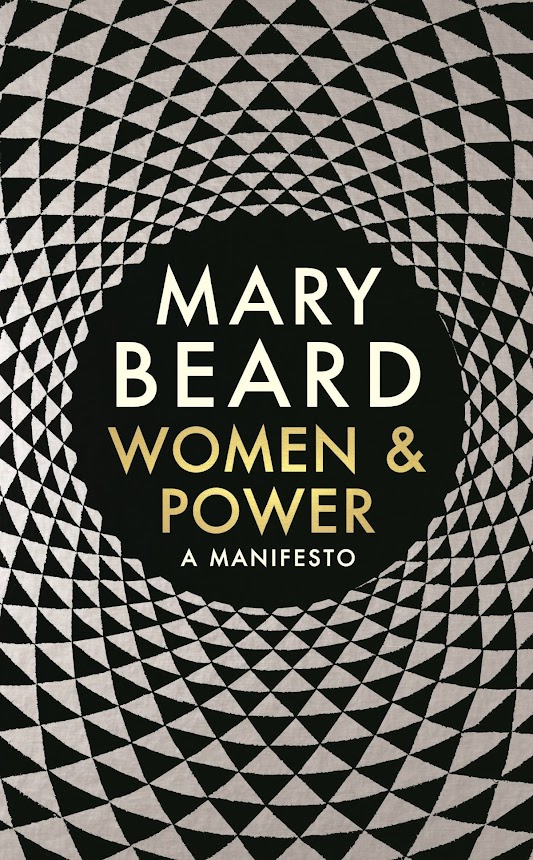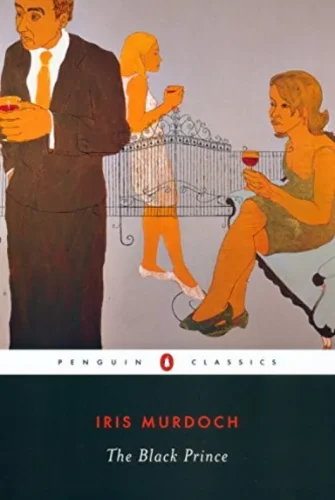This summary centers on power: the allocation of authority, our actions regarding it, and how we can empower ourselves and others. A summary of the book “Women & Power” by Mary Beard. In an academic style that is still engaging and approachable, Beard elucidates how society structured power to marginalize women and encourages readers to envision what power could encompass in the present era.
Authority on classical studies and Cambridge lecturer Mary Beard elucidates that today’s misogyny towards women – ranging from anonymous online threats of harm to subtle acts of omission from authoritative systems – has roots in classical antiquity. In an academic yet engaging manner, she delineates how power was constructed by society to exclude women. Beard’s inspiring historical analysis prompts readers to reimagine the nature of power in the contemporary context.
- Key Points
- Historical instances of men silencing women resonate with contemporary events
- Ancient Greeks interpreted women who spoke publicly as androgynous and monstrous
- Many disregard feminine-sounding voices as authoritative
- Modern women encounter threats when they speak out, mirroring ancient predicaments
- Society harshly penalizes women for their missteps more than it does men
- Western society frames power as existing beyond the realm of the feminine
- Modern women have challenged men’s exploitation of authority as part of the #MeToo movement
- Social movements underscore the urgency of redefining power
- About the writer
- Analysis
Key Points
- Historical instances of men silencing women resonate with present-day occurrences.
- In ancient Greece, women speaking publicly were viewed as androgynous and monstrous.
- Feminine-sounding voices are often not perceived as authoritative.
- Contemporary women confront threats when expressing themselves, paralleling ancient challenges.
- Societal repercussions for mistakes are harsher on women compared to men.
- Western society segregates power from femininity.
- As part of the #MeToo movement, women opposed men’s power abuses.
- Social movements highlight the importance of reimagining power dynamics.

Historical instances of men silencing women resonate with contemporary events
One of the earliest accounts of a man stifling a woman’s voice dates back 3,000 years, close to the inception of documented Western civilization. In Homer’s Odyssey, Queen Penelope requests a bard, narrating the tribulations preventing Greek heroes’ return after the Trojan War, to sing a more uplifting tune; her spouse, Odysseus, is among these absent heroes.
Her son Telemachus interrupts her, instructing her to, “Retire to your chambers, and resume your own tasks, the loom and the spindle…Speech is men’s affair, without exception, and mostly mine, as I wield the power within this domain.” Past narratives unveil numerous instances of men silencing women. These scenarios echo contemporary episodes of male sidelining of women from public discourse. The anecdotes also signify that modern forms of intimidation – like issuing threats on social media – and the persecution of women who dissent from male authority or established power structures are not recent occurrences.
“I am intrigued by the connection between the classic episode in Homer of silencing a woman and the contemporary contexts where women’s voices are sidelined in our culture and politics, from prominent positions to everyday scenarios.”
When British policymakers drafted the parliamentary regulations for the House of Commons in the 19th century, they drew inspiration from ancient customs. Reports suggest that even Barack Obama’s speechwriters drew insights from ancient statesmen and orators like Cicero. The legacy of ancient public speaking molds modern perceptions of acceptable or unacceptable public speech forms. The exclusion of women from public dialogue, commentary, and debates has a convoluted history, and several classical notions on gendered advocacy approaches influence current conversations.
Ancient Greeks interpreted women who spoke publicly as androgynous and monstrous
In ancient times, public speaking was deemed inherently and distinctively masculine. Oratory was intertwined with the societal construction of masculinity, not femininity. In first-century Rome, when women delivered public speeches, they were referred to as “women who, despite their natural disposition, dared not remain voiceless in the public square.” When a woman named Maesia effectively defended herself in Roman courts, this feat was ascribed to her possessing “mannish traits,” being androgynous.
“A female speaking in public was, in most circumstances, fundamentally untraditional.
Ancient Greek fables about women challenging men, like Medea, Antigone, and Clytemnestra, depict them as “aberrant hybrids” deserving societal retribution for clinging to power “unnaturally.” In Aeschylus’s play Agamemnon, for example, Queen Clytemnestra holds dominion over her city in King Agamemnon’s absence during the Trojan War. Aeschylus characterizes her as possessing “masculine resolve,” and then portrays her endeavor to retain power unlawfully through her husband’s slaying upon his return. Her progeny reinstates the patriarchal status quo by uniting to execute her.
Many disregard feminine-sounding voices as authoritative
In Homeric Greek, the term mythos delineates authoritative discourse, contrasting with women’s private, domestic conversations. This notion continues to affect contemporary perceptions of what an informed speaker should sound like. Presently, Western female politicians are deemed lacking in authority or sagacity if they do not mimic a deep, masculine timbre.
Similar to the ancient Western world, modern women in politics feel compelled to embody more androgynous traits – such as imitating male vocal characteristics – to command respect. For instance, Margaret Thatcher underwent vocal coaching to modulate her high-pitched feminine voice into a deeper, more masculine intonation, believed by her counselors to exude greater authority.
“A revival is necessary to redefine the concept of ‘authoritative voice’ and to analyze the origins of such a construct.”
Romans disparagingly described women who voiced their opinions in public forums, equating their speech to “yelping” and “barking.” Today, misogynists label opinionated women as “complainers” or “nags.” Given the underrepresentation of women in influential political roles, it is imperative to reflect on the gender biases dictating which voices are perceived as authoritative and which are associated with impertinence or lack of dignity.
Modern women encounter threats when they speak out, mirroring ancient predicaments
Tales from ancient Western history frequently portray women violently stripped of their speaking privileges by men. For instance, in Roman poet Ovid’s Transformations, Queen Philomela’s aggressor severs her tongue to prevent her from discussing his wrongdoing. In the Roman fable, the sprite Echo loses her capacity to articulate. As penance for excessive speech, Echo is limited to echoing others’ phrases — never her own voice — for the rest of her life. These anecdotes functioned as lessons of caution. Should women risk speaking too assertively or challenging the male-dominated establishment, they would endure brutality or mockery.
“I’ve lost count of the times I’ve been referred to as an ‘uninformed idiot’.” ”
Even today, certain men intimidate and intimidate women who speak out in conventionally male-dominated roles, including professional sports commentary and politics. For instance, when Jacqui Oatley became the inaugural female in the United Kingdom to deliver sports commentary for the football show Match of the Day, male commentators criticized her performance as “a slight to the controlled commentaries of men.”
Influential women often encounter online threats of violence — encompassing rape or murder. Internet trolls flock to Twitter, attacking women who voice their viewpoints with threats like a tweet aimed at author Mary Beard that conveyed, “I am going to sever your head and violate it.”
Some men bully women in politics as they strive to speak publicly. For instance, in the British House of Commons, male MPs heckle female colleagues loudly to drown out their voices. At the core of this mistreatment is a fear that women might legitimately defy the patriarchal hierarchy. Ovid captures this fear in Transformations when Philomela narrates her tale of survival — despite lacking her tongue — by embedding her saga into textile art and identifying her assailant.
Society harshly penalizes women for their missteps more than it does men
Women confront an unjust double standard when speaking publicly and committing errors. Individuals are more willing to overlook male politicians’ slip-ups — consider, for instance, Boris Johnson’s clueless-sounding remarks during a 2017 interview concerning the Tory’s stance on combating racism within the judiciary or broadening access to higher education. Nevertheless, women endure more severe criticism for their mistakes.
“It’s not only harder for women to excel, they face much harsher treatment when they slip up. ”
Whereas people tended to dismiss Johnson’s blunders as acceptable forms of “laddish waywardness,” they displayed less leniency when UK MP Dianne Abbott became flustered during the same electoral period while discussing figures related to police recruitment. People ridiculed her, hurling taunts like “overweight fool” and “imbecilic.” Women possess the right to pursue success in conventionally male-dominated roles, as well as the freedom to err without provoking fiery rebuke.
Western society frames power as existing beyond the realm of the feminine
Conventional definitions of power exclude women. History does not provide a blueprint for how influential women should occupy traditionally male-dominated roles. Women in such positions frequently emulate masculine characteristics. Female politicians such as Hillary Clinton and Angela Merkel, for instance, sport pantsuits to conform to the perception of a potent figure, which society deems as inherently masculine.
The ancient Greeks perceived the formidable Goddess Athena as more masculine than feminine, portraying her in male warrior garb and as a virgin birth, not from a mother but from her father’s head. When individuals conjure images of authority, like a professor or politician, these images predominantly feature males. A search for images of cartoon professors using UK Google Images, for instance, yields a vast majority of male characters.
Although more women presently hold powerful roles than they did five decades ago — now assuming positions spanning from police officers to CEOs — these women constitute a minority in positions of power. People frequently associate femininity with fragility and masculinity with authority. President Donald Trump, for example, vehemently criticized actress Melissa McCarthy’s portrayal of then-White House press secretary Sean Spicer on Saturday Night Live as it rendered him appear “feeble.”
“The message is straightforward yet critical: As far back as we can trace in Western history, there exists a profound separation — concrete, cultural, and imaginative — between women and power. ”
When the idea of female power does surface in historical lore, it primarily emerges as something men must suppress whenever it emerges. The symbolism of the Medusa’s head, portrayed in art from the ancient Greeks to modern times, encapsulates this perceived menace to male dominion.
In one rendition of Medusa’s backstory, Poseidon assaults Medusa within Athena’s temple, and Athena penalizes his victim — instead of Poseidon — by metamorphosing Medusa into a monster with serpents for hair. Medusa attains power following this transformation, and whoever gazes at her turns to stone. A male champion, Perseus, beheads her to strip her of this authority.
Modern women have challenged men’s exploitation of authority as part of the #MeToo movement
In classical antiquity, men allowed women to speak publically in two instances: when they were victims detailing crimes perpetrated against them, and when they were nearing martyrdom. Early Christian women in Ancient Rome, for instance, would testify before being devoured by lions.
Media and public platforms created avenues for women’s voices as part of the #MeToo movement, with women recounting their experiences as survivors of assaults and rape carried out by powerful men in sectors such as film.
“Thankfully, not everything we do or think traces directly or indirectly to the Greeks and Romans; and I frequently find myself emphasizing that there are no simple lessons for us in the history of the ancient world…That being said, delving deeper into Greece and Rome aids us in scrutinizing ourselves more closely, and in comprehending better how we have learned to think as we do.”
While women have rightfully felt empowered to articulate their narratives — a challenging endeavor given that men acted as gatekeepers to their advancement — influential male perpetrators of these transgressions will only face repercussions if society dissects the accused aggressors’ narratives. What justifications are potent men employing to rationalize their actions to themselves and others, and why do these justifications no longer suffice? It is insufficient for women to divulge their tales of surviving harassment and assault; society must now collectively contest the narratives on which powerful men rely when they exploit their authority.
Social movements underscore the urgency of redefining power
Power should no longer be the exclusive and esteemed domain of a select few, intertwined with leadership, prestige, and celebrity. Movements such as Black Lives Matter underscore reimagining power as a collaborative entity, uniting leaders and their followers. Few individuals were aware of Alicia Garza, Opal Tometi, and Patrisse Cullors before they founded Black Lives Matter, yet they initiated one of the most pivotal social movements in recent memory. Garza, Tometi, and Cullors demonstrate that everyday individuals can challenge the prevailing order and that women do not need elite status to wield influence.
About the writer
Mary Beard, the editor of classics at The Times Literary Supplement, a distinguished scholar at the University of Cambridge, holds positions as a professor of ancient literature at the Royal Academy of Arts and a fellow at Newnham College.
Analysis
The publication comprises a pair of talks given by the author, an esteemed scholar of classics and feminism, in 2014 and 2017. Central to the book is an exploration of the origins of misogyny and the marginalization of women from public discourse and influence.
The writer delves into the ancient origins of these issues in Greece and Rome, where women were either silenced or ridiculed for speaking up and where the masculine orator was established as the standard for political influence. She illustrates how these enduring patterns have shaped and impacted contemporary views and treatment of women in fields such as literature, media, politics, and academia.
She also questions prevalent beliefs and misconceptions about women and authority, challenging notions like women having an innate inclination towards peace compared to men, or the idea that women must adopt masculine characteristics to excel in leadership roles. She proposes that rather than conforming to a male-centric system, women should scrutinize and redefine the very notion of authority itself, fostering a more inclusive and diverse environment for public discourse.
The work offers a compelling and thought-provoking examination of the enduring link between women and authority, highlighting the hurdles and trials encountered in the pursuit of equality and acknowledgment in the public arena. The author blends her vast knowledge of classical literature and history with her personal encounters as a female academic and target of online harassment to support her arguments.
Her writing exhibits precision, humor, and fervor, drawing on examples ranging from Homer to Hillary Clinton, from Medusa to Angela Merkel, and from Ovid to Charlotte Perkins Gilman. She also engages with diverse feminist ideologies and viewpoints, such as Virginia Woolf’s A Room of One’s Own, Judith Butler’s Gender Trouble, and Chimamanda Ngozi Adichie’s We Should All Be Feminists.
The book is not only educational but also motivational and empowering. It encourages readers to reassess the essence and exercise of authority, prompting them to challenge the male-dominated structures and stereotypes that stifle women’s voices and possibilities. The publication is essential for those intrigued by feminism, classical studies, or social equity.


